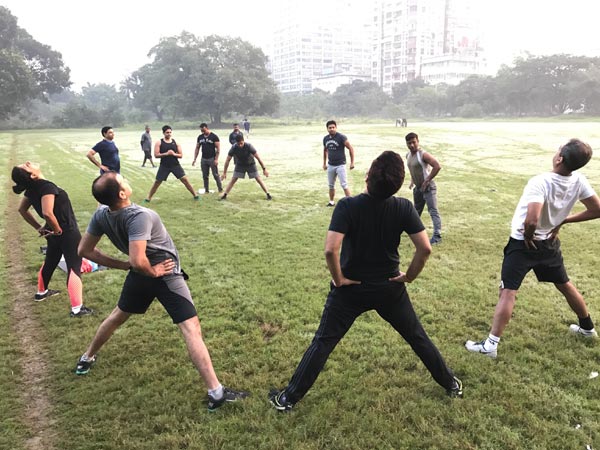
Exercise is best defense against deep abdominal fat: Study
Dallas, Feb 4 (IBNS): Scientists know that the type of fat you can measure with a tape isn’t the most dangerous. But what is the most effective way to fight internal, visceral fat that you cannot see or feel? The answer is exercise.
Researchers at UT Southwestern Medical Center analyzed two types of interventions – lifestyle modification (exercise) and pharmacological (medicine) – to learn how best to defeat fat lying deep in the belly. The study is published in Mayo Clinic Proceedings.
“Visceral fat can affect local organs or the entire body system. Systemically it can affect your heart and liver, as well as abdominal organs,” said senior author and cardiologist Dr. Ian J. Neeland, Assistant Professor of Internal Medicine. “When studies use weight or body mass index as a metric, we don’t know if the interventions are reducing fat everywhere in the body, or just near the surface.”
To find out, the researchers evaluated changes in visceral fat in 3,602 participants over a 6-month period measured by a CT or MRI exam. Both exercise and medicines resulted in less visceral fat, but the reductions were more significant per pound of body weight lost with exercise, said UT Southwestern Medical Center website.
“The location and type of fat is important. If you just measure weight or BMI, you can underestimate the benefit to your health of losing weight,” said Dr. Neeland, a Dedman Family Scholar in Clinical Care. “Exercise can actually melt visceral fat.”
Participants in exercise trials were 65 percent female, with a mean age of 54 and mean BMI at enrollment of 31. Exercise regimens were monitored, not self-reported. The majority of exercise trials were performed in the U.S. and Canada, while pharmacologic trials included the U.S., Canada, Sweden, Japan, and four multinational cohorts.
The medications used by study participants were FDA approved or in the FDA approval pipeline.
According to the Centers for Disease Control and Prevention, obesity affects nearly 40 percent of adult Americans. Dr. Neeland said researchers previously thought of fat as inert storage, but over the years this view evolved and fat is now seen as an active organ. “Some people who are obese get heart disease, diabetes, or metabolic syndrome – and others don’t,” Dr. Neeland said. “Our study suggests that a combination of approaches can help lower visceral fat and potentially prevent these diseases.”
Other UT Southwestern researchers who contributed to this work include Dr. Shreya Rao, cardiology fellow; Dr. Ambarish Pandey, Assistant Professor of Internal Medicine; Dr. Bryan Park, internal medicine resident; Helen Mayo, Faculty Associate; Dr. Dharam Kumbhani, Associate Professor of Internal Medicine; and Dr. James A. de Lemos, Professor of Internal Medicine. Dr. de Lemos holds the Sweetheart Ball-Kern Wildenthal, M.D., Ph.D., Distinguished Chair in Cardiology.
Support Our Journalism
We cannot do without you.. your contribution supports unbiased journalism
IBNS is not driven by any ism- not wokeism, not racism, not skewed secularism, not hyper right-wing or left liberal ideals, nor by any hardline religious beliefs or hyper nationalism. We want to serve you good old objective news, as they are. We do not judge or preach. We let people decide for themselves. We only try to present factual and well-sourced news.







